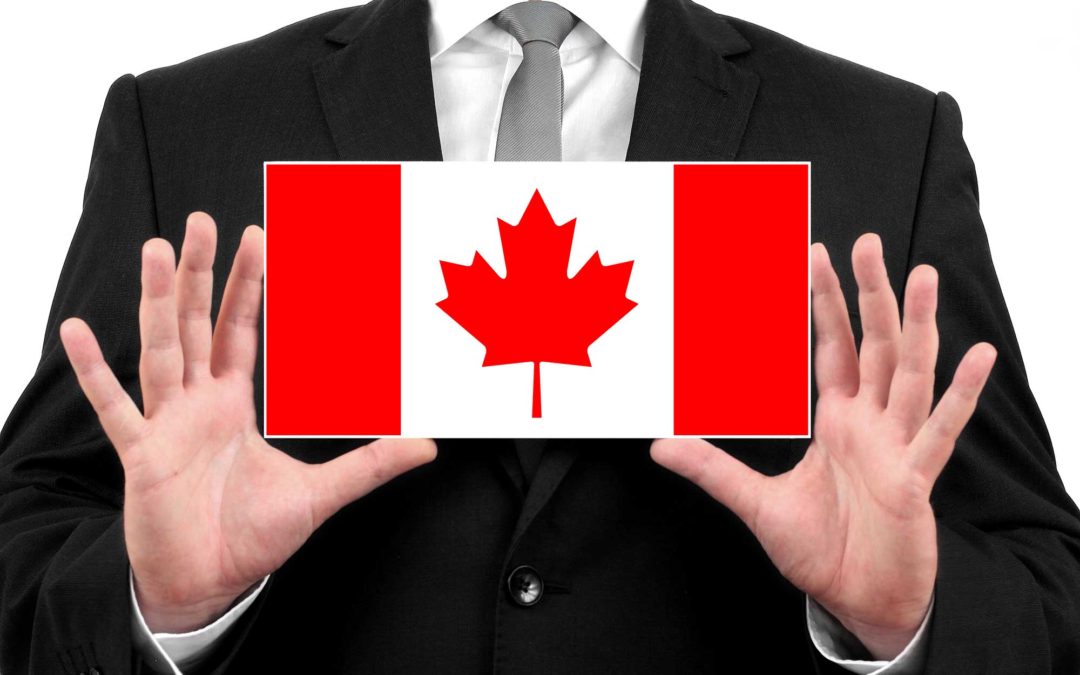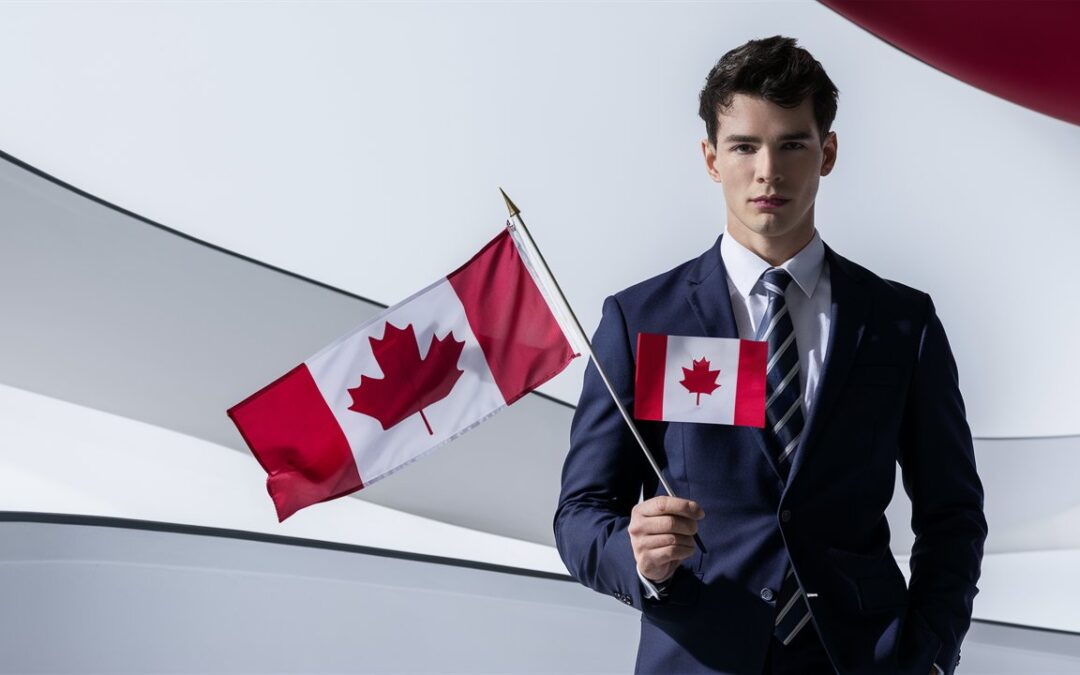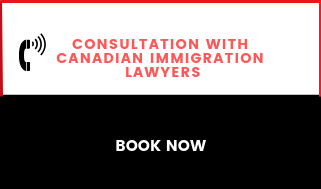
by Immilaw Team | Feb 18, 2025 | Canada Immigration
Sponsoring a spouse or partner for permanent residence in Canada is an excellent way to reconnect with loved ones. If you are a Canadian citizen or permanent resident, you can sponsor your loved one for permanent residence. However, understanding the eligibility requirements and the application process can be challenging.
The blog explores the eligibility criteria for sponsorship and an overview of the sponsoring process.
Who can Sponsor?
Understanding the eligibility for sponsorship is the initial step in bringing your spouse or partner. You must meet the following criteria to become eligible for sponsoring your dear ones:
- You must be 18 years
- A Canadian citizen/ resident or a registered Indian
- Living in Canada
- Living outside Canada, you must show intent to return to Canada when your sponsored partner becomes a permanent resident.
- Permanent residents cannot sponsor someone while living outside Canada.
- You must provide for the basic needs of those you sponsor, not receive social assistance (except for disability), and sign a financial support undertaking for at least three years after your permanent residency.
Quebec Spousal Sponsorship
Quebec Residents who wish to sponsor their spouse or partner for immigration must adhere to specific requirements. After being approved as a sponsor by Immigration, Refugees and Citizenship Canada (IRCC), they must meet Quebec’s immigration sponsorship criteria.
This includes signing an undertaking with the province and having the Quebec Ministry of Immigration assess their income. Sponsors must understand these additional steps if they wish to bring their loved ones to Quebec.
Who is not eligible to bring your spouse/partner to Canada?
Now that you have understood the eligibility requirements, it’s essential to ensure you do not fall into any situations that would make you ineligible to sponsor your spouse or partner.
You are not eligible to sponsor your spouse, common-law, or conjugal partner in Canada if:
- You gained PR status less than five years ago after being sponsored by a spouse or partner.
- You have signed an undertaking for a previous spouse or partner who has not been a permanent resident for more than three years.
- You are still financially responsible for a previous spouse or partner, bound by the three-year undertaking.
- You are in default on an immigration loan, performance bond, or court-ordered family support payments.
- You failed to provide the financial support you agreed to when sponsoring someone in the past (this does not apply to Quebec residents).
- You are declared bankrupt and have not yet been discharged (not applicable to Quebec residents).
- You receive social assistance for any reason other than a disability.
- You were convicted of, or threatened or attempted to commit, a violent crime, sexual offence, or an offence causing bodily harm to a relative.
- You are in a penitentiary, jail, reformatory, or prison.
- You have applied to sponsor your current spouse and haven’t received a decision.
- You can’t legally stay in Canada due to being subject to a removal order.
What makes you Eligible to Sponsor a spouse or partner in Canada?
Canadian permanent residents and citizens have the opportunity to sponsor their spouse or partner for permanent residency.
To qualify, the sponsored person must be at least 18 years. Their relationship with the sponsor must meet specific criteria, including legal marriage or a committed partnership.
Various Types of Relationships Eligible for Sponsorship
When sponsoring a partner for Canadian permanent residency, it is essential to understand the different relationship types recognized by immigration authorities. Each category has distinct criteria that must be met for the relationship to be recognized by IRCC.
- A Spouse is a person legally married to the sponsor. The individuals must be legally married to each other, with the marriage recognized in both the country where it took place and in Canada. Both spouses must have been physically present at the marriage ceremony.
- A Common-law partner is an individual who has lived with the sponsor in a conjugal relationship continuously for at least one year. They should demonstrate a significant commitment by sharing a home, supporting each other financially and emotionally, and presenting themselves publicly as a couple. Having children together can further validate their common-law relationship.
- A conjugal partner must be in a conjugal relationship with the sponsor for at least one year while living outside Canada. They must also show significant attachment, mutual interdependence, and obstacles that prevent them from marrying or living together. Examples of such obstacles include immigration barriers, religious restrictions, or cultural limitations related to sexual orientation.
In most cases, the sponsored partner must be admissible to Canada. If the spouse or common-law partner lives in Canada, they need valid temporary resident status (like a work permit or visitor status) or must qualify for an exemption.
Who must be Admissible to Canada for Sponsorship?
- The sponsored individual must generally be admissible to Canada.
- If the spouse or common-law partner resides in Canada, they need valid temporary resident status (work permit, study permit, or visitor status).
- They may also be exempt from needing temporary resident status under a public policy in 2005.
- The sponsored partner must have valid documents by the time they receive permanent residency.
- Under A25 (1) of the Immigration and Refugees Protection Act, spouses or common-law partners without valid temporary resident status can be sponsored.
Even if the partner is inadmissible due to:
- Overstaying a visa, visitor record, work permit, or study permit.
- Working or studying in Canada without legal status.
- Entering Canada without the required visa or documentation.
- Entering Canada without a valid travel document.
What are the benefits enjoyed by Permanent Residents in Canada?
Permanent residents in Canada enjoy a range of rights and privileges that allow them to live and thrive in the country.
Some of them include:
- They can access most social benefits available to Canadian citizens, including healthcare and education.
- They can live, work, and study anywhere in Canada without restrictions.
- They are protected by Canadian law and the Canadian Charter of Rights and Freedoms to uphold their rights.
- They can apply for Canadian citizenship after meeting specific residency requirements.
However, permanent residents cannot cast their votes in federal or provincial elections. They may be ineligible for specific jobs that require high-level security clearance.
By fulfilling residency obligations and adhering to Canadian laws, permanent residents can maintain their status and enjoy these privileges while contributing to Canadian society.
How Do Permanent Residents Become Canadian Citizens?
Permanent residents must meet several requirements to become Canadian citizens. You may find below some of the essential criteria:
- You must have lived in Canada for at least three of the last five years.
- You must prove your language skills by taking an approved language test.
- You must file their tax returns for the applicable years.
- You must pass a test on the rights and responsibilities of citizens and have knowledge of Canada’s culture and history.
- Take the Oath of Citizenship to finalize their status as Canadian citizens.
- By meeting these requirements, permanent residents can successfully transition to Canadian citizenship.
Read to Know: Enhance Your Chances of Success in Immigration: Hire an Immigration Lawyer
Feel free to contact us today to schedule a consultation and to achieve your immigration goals.

by Immilaw Team | Feb 13, 2025 | Canada Immigration
Are you dreaming of living and working in Canada? Also, stressed about the mountain of paperwork and confusing legal requirements? Then, you will probably realize that Canadian immigration law is complex and requires a lot of paperwork. It is important to note that Canadian immigration constantly changes, and a misstep could cost you everything.
According to a Toronto Star report, enlisting the help of an experienced immigration lawyer nearly doubles your likelihood of a positive outcome. So, it is recommended that the help of an experienced immigration lawyer can nearly double your likelihood of a positive outcome.
This blog will explore the benefits of hiring an immigration lawyer and how they help you to navigate the Canadian immigration process smoothly.
What are the Benefits of Hiring an Immigration Lawyer?
- Expertise and Knowledge: Immigration lawyers possess in-depth knowledge of constantly changing immigration laws and regulations. They ensure your application is accurate, complete, and submitted on time.
- Customized Legal Strategy: Lawyers can create a strategy tailored to your unique circumstances, identify potential roadblocks, correct them quickly, and advocate for your case effectively.
- Avoiding Costly Mistakes: An immigration lawyer’s attention to detail helps you prevent errors or omissions that could lead to rejection or delays. They ensure all forms are properly filled out and documents are correctly submitted.
- Access to Resources: Lawyers can access legal databases, precedents, and connections within the immigration system, expediting the process and providing valuable insights.
- Personalized Guidance: Attorneys can provide guidance that considers an individual’s unique circumstances and goals.
What makes an Immigration Lawyer the Smarter Choice Over an Immigration Consultant?
Let us explore the key reasons why choosing an immigration lawyer can be more beneficial than an Immigration consultant:
- Regulated by Law Societies: Immigration lawyers are regulated by provincial or territorial law societies. Lawyers must meet strict standards for education, ethics, and conduct. In contrast, immigration consultants may not be subject to the same level of oversight, potentially leading to inconsistencies in their qualifications and competence.
- Extensive Legal Knowledge and Resources: Lawyers can access confidential legal research tools and resources that consultants do not. This gives them a strategic edge in preparing strong applications and handling complex cases.
- Representation Before Legal Bodies: Only immigration lawyers can represent you before the Immigration and Refugee Board (IRB) and in court. They can provide comprehensive legal support if complications arise during your immigration process. Consultants cannot represent you in court.
- Professional Conduct Rules: Lawyers are obliged to act in the client’s best interests and maintain honesty, integrity, and transparency while engaging with the clients. Consultants are not bound by the same legal ethics, increasing the risk of misleading claims.
- Expertise in Handling Complex Cases: Lawyers are trained to handle complicated immigration cases, legal disputes, and appeals, ensuring thorough legal representation beyond basic application processing.
Choosing an immigration lawyer ensures guidance and legal protection throughout your immigration journey, which consultants cannot assure.
How to Protect Yourself from Immigration Fraud?
Immigration fraud is a growing threat, preying on the hopes of individuals seeking a better life in Canada. Unfortunately, this can make individuals vulnerable to fraudulent schemes. Some individuals and companies may promise quick and easy solutions, but these may be fake, and applicants may end up losing a good amount of money.
Learn how to recognize the red flags, verify credentials, and protect your personal information to ensure your Canadian dream doesn’t become a nightmare.
Here are essential steps to safeguard your application and future from immigration scams:
- Ensure the individual or company is a member of a recognized professional organization, such as the Canadian Bar Association (CBA) or the College of Immigration and Citizenship Consultants (CICC).
- Always request written agreements that clearly outline the services provided, associated fees, and terms of the arrangement to avoid hidden costs or false promises.
- Before providing personal information, ensure that websites are secure.
- Be wary of anyone promising quick approvals or guaranteed visas. No one can guarantee application approval.
- Be cautious if asked to pay into a personal bank account. Legitimate firms typically use corporate accounts.
- Be cautious if someone claiming to be a CBSA employee requests personal information or demands money. The CBSA never asks for your SIN or credit card by telephone, text, or email.
If you believe you have become a victim of immigration fraud, report it immediately to local authorities, Immigration, Refugees and Citizenship Canada (IRCC), and professional regulatory bodies like the CICC or CBA.
Why Hiring an Immigration Lawyer is a Smart Investment for Your Future?
You cannot predict the outcome of an immigration case with certainty. Similarly, you cannot foresee all the associated expenses involved in an immigration case due to various influencing factors. The cost of engaging an immigration lawyer may vary depending on the complexity of the matter and the lawyer’s fee structure. However, this expense is often a wise investment rather than merely an added cost.
By taking the help of an experienced immigration lawyer, you significantly increase your chances of a successful application. Their expertise helps you navigate complex legal procedures, avoid costly errors, and handle potential challenges efficiently. Ultimately, this can save time and money in the long run and provide invaluable peace of mind.
Expert Immigration Services from ImmiLaw Immigration Law Professional Corporation
Immigration law is complex and constantly evolving, meaning even minor errors can lead to significant legal and financial repercussions. Hiring an immigration lawyer can significantly boost your chances of a successful application, whether you are a student, professional, or part of a family seeking a new future.
ImmiLaw Immigration Law Professional Corporation aims to deliver cost-effective, client-focused solutions customized to your specific immigration needs. We provide transparent pricing and personalized support to help you navigate the complexities of the immigration process with ease. Our expertise ensures that your application is accurate, complete, and compliant with the latest immigration laws, reducing the risk of delays or rejections.
Remember, the cost of hiring an immigration lawyer is an investment in your future. Don’t take chances with your legal status—contact us today to schedule a consultation and to achieve your immigration goals.
Read to Know: Manitoba and Alberta Provides New ITAs for Provincial Nomination

by Immilaw Team | Feb 3, 2025 | Canada Immigration
As 2025 begins, Canada is welcoming foreign skilled workers to settle in through its Provincial Nominee Programs (PNPs). Recently, Manitoba and Alberta held draws that opened doors for many candidates eager to start a new chapter in Canada.
The article will delve into the details of recently held draws, the opportunities are available for prospective immigrants and the requirements they must fulfil to qualify.
Manitoba PNP Draw
Manitoba conducted its first PNP draw of the year, issuing 197 Letters of Advice to Apply (LAAs) across two streams: Skilled Worker in Manitoba Stream and Skilled Worker Overseas Stream.
Skilled Worker in Manitoba Stream
- Letters of Advice to Apply Issued: 145
- Lowest CRS Score: 838
- Eligibility: Candidates or their spouses must have completed post-secondary education in Manitoba.
Skilled Worker Overseas Stream
- Letters of Advice to Apply Invitations Issued: 52
- Lowest CRS Score: 615
- Priority for candidates from the Winkler area.
Among the candidates invited, 52 had valid Express Entry profiles, enhancing their chances for permanent residency through additional points in the Express Entry system.
About Manitoba Provincial Nominee Program (MPNP)
Manitoba was the first province in Canada to introduce a Provincial Nominee Program (PNP) in 1998. The program aimed at attracting skilled immigrants to support the province’s economic growth. The Manitoba Provincial Nominee Program (MPNP) has been instrumental in increasing the province’s population and supporting its labour force.
The Manitoba Provincial Nominee Program is a key immigration pathway designed to attract skilled workers, entrepreneurs, and international graduates to the province.
The MPNP offers five main immigration streams:
- Skilled Worker in Manitoba Stream: This stream is for temporary foreign workers and international graduates with a permanent job offer from a Manitoba employer.
- Skilled Worker Overseas Stream: For skilled workers outside Canada who have a strong connection to Manitoba.
- Manitoba Business Investor Stream: For individuals looking to begin or invest in a business in Manitoba.
- International Education Stream: This is for international students who have completed post-secondary education at institutions in Manitoba and want to settle permanently there.
- Morden Community Driven Initiative: Specifically for tradespeople like welders and plumbers who wish to settle in Morden.
Who can Apply for the Manitoba Provincial Nominee Program?
You may qualify for MPNP:
- If you have relevant work experience and can demonstrate a strong connection to Manitoba or
- If you are working in Manitoba temporarily and have a permanent job offer from your employer. or
- If you are looking to establish or invest in a business in Manitoba. or
- If you graduate from a recognized post-secondary institution in Manitoba and wish to settle permanently.
Additional Criteria
To qualify, applicants must meet specific criteria, including
- Scoring at least 60 points on the MPNP Points Assessment Grid that evaluates factors such as age, education, work experience, and language proficiency.
- Demonstrating a connection to Manitoba, which can be strengthened by having friends or relatives living in the province.
- Showing the intention and ability to economically establish in Manitoba.
Hence, the MPNP provides various pathways for skilled individuals and their families to immigrate to Manitoba, contributing to the province’s growth and diversity.
Results of Alberta Advantage Immigration Program (AAIP) Draw
On December 23, 2024, the Alberta Advantage Immigration Program (AAIP) conducted a draw and issued 588 invitations to candidates who met specific eligibility criteria. The lowest-ranked candidate invited had a score of 55. The draw invited candidates who fall under the Alberta Opportunity Stream.
Understanding Alberta Advantage Immigration Program (AAIP)
The Alberta Advantage Immigration Program (AAIP) is a provincial initiative to attract skilled workers and entrepreneurs to Alberta. Through this program, prospective immigrants can receive an Alberta Provincial Nomination Certificate, which allows them to apply for Canadian PR.
What is the eligibility to qualify for the Alberta Opportunity Stream?
If you wish to settle in Alberta, you must meet the following criteria for the Alberta Opportunity Stream under the Alberta Advantage Immigration Program (AAIP).
- Valid Job Offer: A full-time job offer from an Alberta employer in an eligible occupation (excluding specific NOC categories).
- Education: At least a high school education equivalent to Canadian standards.
- Work Experience: At least 12 months of full-time work experience in Alberta within the last 18 months.
- Language Proficiency: A minimum Canadian Language Benchmark (CLB) of 4 or Niveaux de compétence linguistique canadiens (NCLC) level of 4 or higher.
- Work Permit: A valid eligible work permit (excluding PGWPs) that expires on December 31, 2025, or later.
The Alberta Opportunity Stream (AOS) provides a pathway to permanent residency for foreign workers currently employed in Alberta and international graduates from approved Alberta post-secondary institutions. A part of the Alberta Advantage Immigration Program (AAIP), it aims to attract individuals whose skills meet the province’s labour market needs.
International students can apply if they have completed their studies in Alberta and are working on a PGWP.
To qualify, applicants must demonstrate at least six months of relevant work experience in Alberta, meet language proficiency requirements, and adhere to income standards. However, those who studied in other Canadian provinces are not eligible under this stream unless they hold a different type of work permit.
If you want to immigrate to Canada through the PNP or another skilled worker pathway, please contact us for complete guidance and tailored assistance. Our experienced team supports creating EE profiles, choosing PNP programs, and providing additional services. We are here with you at every step of the immigration journey.
The information provided in this article is for general informational purposes only and does not constitute legal, financial, or professional advice. Readers are encouraged to seek guidance from qualified professionals for specific concerns. While we strive for accuracy, we cannot guarantee the completeness of the information presented, and it should not be viewed as a comprehensive analysis. Opinions expressed may change over time. ImmiLaw Immigration Law Professional Corporation does not endorse any third-party advice or services mentioned.
Read to Know: What are the Major Changes to Canada’s Express Entry System in 2025?
Contact us for personalized support and assistance with your immigration needs.

by Immilaw Team | Jan 29, 2025 | Uncategorized
Express Entry is the largest economic immigration pathway in Canada, and it attracts skilled workers from worldwide in a significant way. As per the reports, it is set to undergo substantial changes in 2025.
The federal government is implementing revised targets and updated policies to streamline processes and address Canada’s evolving labour market priorities.
Express Entry: A critical pathway for Immigration to Canada in 2025!
There were significant changes in Canada’s immigration system in 2024. The federal government aimed to welcome a record number of newcomers, with a target of 485,000 permanent residents. The initiative was part of a broader strategy to bolster the economy and address labour shortages across various sectors.
However, this influx was met with challenges, including housing affordability and strains on public services. All these factors led to discussions about the sustainability of such high immigration levels.
In 2025, Canada plans to increase the target to 124,590, up from 110,770 in 2024 under its Federal economic programs. The increase comes with a 20% reduction in overall immigration levels, giving the federal government more control over immigration processes.
As a result, Express Entry will play a more prominent role, with its allocation rising from 22.8% of overall planned PR admissions in 2024 to 31.5% in 2025. The shift clearly indicates that skilled workers seeking immigration to Canada will increasingly rely on Express Entry as a key pathway in the coming years.
How will removing CRS points for Job Offers impact the competition for ITAs?
IRCC plans to eliminate the CRS points for valid job offers starting in 2025. As of now, candidates can earn 50 or 200 extra points on their job offer, which influences their chances of receiving an Invitation to Apply (ITA) for permanent residency.
By eliminating the additional points for job offers, the federal government aims to reduce instances of fraud. They ensure that candidates are selected based on their skills and qualifications rather than their employment status.
Who Will Be Affected?
The removal of CRS points for job offers will apply to all candidates in the Express Entry pool at the time of implementation, including those already working temporarily in Canada.
However, it will not impact individuals who have already received an ITA or those with applications currently in process. With the removal of job offer points, many candidates may see a decrease in their CRS scores, particularly those who rely on these points to boost their rankings.
Candidates can now focus on factors such as language proficiency and work experience to increase their CRS scores. As a result, it may lead to increased competition among candidates, making it crucial for applicants to strengthen their profiles in other areas. You may contact ImmiLaw Global to create and strengthen Express Entry profiles.
What are the New Federal Economic Priorities and In-Canada Focus Allocations?
The Federal High-Skilled (FHS) allocation in Canada’s immigration system is undergoing a significant transformation in 2025.
Two new categories will replace it:
- Federal Economic Priorities Category
- In-Canada Focus Category
About Federal Economic Priorities Category
The Federal Economic Priorities category will target candidates whose skills meet specific labour market demands. This category targets 41,700 admissions and focuses on sectors critical to Canada’s economy, such as healthcare occupations, trade occupations, and candidates with French language proficiency. The federal government aims to address workforce shortages effectively by directing resources towards these high-demand areas.
About In-Canada Focus Category
The In-Canada Focus category will prioritize candidates who are already residing in Canada. This includes individuals in programs such as the Canadian Experience Class (CEC), Express Entry-aligned Provincial Nominee Program (PNP), Federal Skilled Worker Program (FSWP), and Federal Skilled Trades Program (FSTP).
The federal government has allocated 82,890 admissions for this category, reflecting the importance of retaining skilled workers who have already integrated into Canadian society.
By focusing on skilled workers within the country and targeting specific sectors, Canada aims to enhance its labour market while ensuring that immigration policies align with current economic needs. These changes will play a crucial role in shaping the future of immigration in Canada as the country adapts to evolving workforce demands.
How Will Category-Based Selections Shape Immigration in 2025?
IRCC is expected to strongly emphasize category-based selections within the Express Entry system in 2025.
According to the 2025-2027 Immigration Levels Plan, IRCC has designated priority categories for Express Entry draws in 2025, which include:
- Healthcare occupations
- Trades occupations
- French-language proficiency
It is anticipated that IRCC will conduct more Express Entry draws due to their designation as priority sectors under the Federal Economic Priorities allocation in 2025.
What Benefits Will French-Speaking Communities Expect in Canada?
The French proficiency category has been a consistent focus in 2024 and will remain important for Express Entry in 2025, too. Canada to increase the number of francophone immigrants outside Quebec.
IRCC initiative to bolster the representation of French-speaking individuals across Canada and address the decline in French-speaking populations. The ongoing emphasis on this category reflects broader efforts to promote bilingualism and strengthen Francophone communities across the country.
While the list of priority categories is not exhaustive, it highlights the areas where IRCC will focus its efforts. The complete list of priority categories includes
- Science, Technology, Engineering, and Mathematics (STEM)
- Healthcare occupations
- Trades occupations
- Agriculture and Agri-food occupations
- French language proficiency
As Canada moves ahead with these priorities in 2025, it will be essential for prospective immigrants to stay informed about the evolving landscape of immigration opportunities.
At ImmiLaw Immigration Law Professional Corporation, we provide expert guidance through every step of your immigration journey. Contact us for personalized support and assistance with your immigration needs.
Read to Know: How To Apply For An Open Work Permit For Your Spouse During The Sponsorship Process?

by Immilaw Team | Jan 27, 2025 | Canada Immigration
Sponsoring your spouse, common-law, or conjugal partner for Canadian permanent residence is an exciting step toward building a life together in Canada. One of the significant advantages during this transition is the opportunity for your partner to apply for an Open Work Permit (OWP).
The OWP enables them to work for any employer legally in Canada while their application for permanent residence is being processed.
However, the sponsored person must apply for the OWP from within Canada after submitting the sponsorship application.
Key Points to Remember
- Spouses must maintain legal status in Canada while waiting for their OWP.
- They cannot start working until the OWP is approved.
- Applications are submitted online through the IRCC secure account.
How to check your Eligibility for Open Work Permit (OWP)?
To apply for an Open Work Permit (OWP) during the sponsorship process, the sponsored individual must meet specific criteria:
- Genuine Relationship: The sponsored person must have a genuine relationship with the sponsor.
- Residency Requirement: The sponsored individual must reside in Canada with the sponsor.
- Inclusion in PR Application: IRCC must acknowledge the sponsored individual’s Permanent Residence (PR) application to confirm receipt.
Who cannot apply for an Open Work Permit during the Sponsorship process?
Individuals cannot apply for an Open Work Permit during the sponsorship process if:
- Their PR application is refused, withdrawn, or returned.
- They intend to apply for a work permit at a port of entry.
What are the procedures for an Open Work Permit application?
Based on the temporary status of the applicant, the procedure varies when applying for an Open Work Permit (OWP) in Canada for a spouse or partner.
If the Spouse/Partner has a valid Temporary Status
- Those with a valid work permit, study permit, visitor visa, or electronic travel authorization (eTA) can apply.
- After receiving the Acknowledgment of Receipt (AOR) from IRCC for their Permanent Residence (PR) sponsorship application, the sponsor can apply for an OWP.
Special Case: If their temporary resident status will expire in 2 weeks or less and they’ve already submitted their PR sponsorship application, they can apply for an OWP without waiting for the AOR.
If the Spouse/Partner does NOT have Temporary Status
- They must wait for an “Approval in Principle” letter for their PR sponsorship application.
- However, they cannot apply for an OWP under any other public policy or pilot program.
What is the Processing Time for Sponsoring a Spouse or Partner in Canada?
Open Work Permit (OWP) Processing Time
- If you are applying under the Inland Sponsorship program and submit an OWP application, the usual processing time is within 4 months.
- Factors such as application volume, completeness, and additional documentation requirements can affect processing times.
Visitor Visa Processing
Once you submit the sponsorship application and receive an Acknowledgment of Receipt (AOR) from IRCC:
- Your spouse or partner’s visitor visa application will automatically qualify for expedited processing.
- You must submit a visitor visa application.
Applying for an OWP after Arrival in Canada
Once the sponsored person gains temporary resident status in Canada, they can apply for an OWP upon arrival.
- Note: Sponsorship and related applications, like OWPs and visitor visas, are processed faster if the AOR is received.
- Ensure all required documents are included to avoid delays.
How do you apply for an Open Work Permit (OWP) in Canada?
Let us delve into various steps involved in the OWP application process in detail:
- Confirm that you meet the eligibility criteria, such as being a temporary resident, international student, or spouse of a skilled worker.
- Gather all documents, including proof of identity, legal status in Canada, and any additional paperwork specified by the application guidelines.
- Create a secure account on the Immigration, Refugees and Citizenship Canada (IRCC) website to access the application process.
- Carefully fill out the required forms accurately, answering questions about your current situation and the type of work permit you are applying for.
- You can pay the application fees online, typically a $100 open permit holder fee and a $155 work permit fee.
- After ensuring all information is correct and complete, submit your application through the IRCC portal.
- Monitor your application status through your IRCC account. Processing times can vary, so applying well in advance is advisable.
You can contact ImmiLaw Immigration for expert assistance to ensure the smooth and prompt submission of your application. Our team provides personalized guidance, helps prepare accurate documentation, and ensures compliance with all Canadian immigration requirements.
What critical information is essential after applying for an Open Work Permit (OWP)?
- Your spouse will not be legally allowed to work in Canada until they receive their OWP unless they have another form of authorization.
- They must maintain their legal status as a temporary resident while waiting for the OWP.
- They can only start working only after receiving the OWP from IRCC.
- If your spouse already possesses a valid Canadian work permit, they can continue working as long as they apply for the OWP before their current permit expires.
- If the OWP application is approved, IRCC will send a confirmation online and mail the work permit.
- If refused, IRCC will return the application and refund the OWP-holder fee.
How to Check the Status of an Open Work Permit Application?
You can check the status of your OWP application by logging into your IRCC secure account, where you can view real-time updates and messages about your application.
Alternatively, you can use the Client Application Status (CAS) tool on the IRCC website. This tool requires details such as your unique client identifier (UCI), application number, and personal information like name and date of birth.
If you have applied through a consultant or agent, contact them directly for updates. Note that status updates will only be visible after receiving an Acknowledgment of Receipt (AOR) from IRCC.
Frequently Asked Questions (FAQs)
1. Can I work while waiting for my Open Work Permit?
No, you cannot work until you receive your OWP unless you have another form of authorization.
2. How do I check the status of my OWP application?
You can check the status by logging into your IRCC secure account or using the Client Application Status tool on the IRCC website.
3. Should I maintain legal status while waiting for my OWP?
Yes, you must maintain your legal status as a temporary resident in Canada during the processing period.
4. When can I start working after receiving my OWP?
You can start working as soon as you have the OWP in hand.
5. What if my OWP application is refused?
If your application is refused, the IRCC will return it. You are also eligible for a refund.
To avoid refusal and any obstacles in the application process, you may contact ImmiLaw Immigration for expert guidance and support. We can help ensure your application is complete and meets all requirements, increasing your chances of approval.
Read to Know: How to Find the Right Immigration Lawyer for Your Needs?






